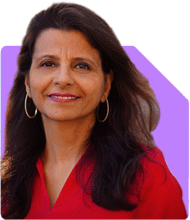Ramalingam Kalirajan |11004 Answers |Ask -Follow
Mutual Funds, Financial Planning Expert - Answered on May 09, 2024
He has an MBA in finance from the University of Madras and is a certified financial planner.
He is the director and chief financial planner at Holistic Investment, a Chennai-based firm that offers financial planning and wealth management advice.... more

Hi I am investing in two small cap MF( axis small and quant small cap) from past two months. Now i want to add few more funds. Please advise if I can add quant infrastructure fund, sbi Magnum midcap fund, motilal oswal midcap fund. Or any other you can suggest. My holding is 7-20 years
Before proceeding, let's acknowledge your commitment to long-term investing, spanning over a period of 7 to 20 years. This duration aligns well with the potential growth trajectory of equity-oriented mutual funds.
When considering additional funds, it's crucial to maintain a balanced approach. While small-cap funds can offer high growth potential, they typically come with increased volatility. Mid-cap funds, on the other hand, offer a balance between growth potential and risk.
Before introducing new funds, assess your existing holdings' composition. Ensure that the new funds complement your current investments and contribute to overall diversification. Avoid overlap in sectors or styles to mitigate concentration risk.
Considering your investment horizon, actively managed funds may be more suitable than index funds. Actively managed funds have the potential to outperform the market, especially in dynamic market conditions. However, it's essential to choose funds managed by experienced and skilled fund managers.
Keep in mind the expense ratio and fund manager's track record while selecting funds. Lower expense ratios can translate to higher returns over the long term.
Lastly, periodic review and rebalancing of your portfolio are essential to ensure it remains aligned with your financial goals and risk tolerance.
In conclusion, adding mid-cap funds can complement your existing small-cap investments and enhance diversification. Choose funds managed by experienced professionals and regularly monitor your portfolio's performance.
Best Regards,
K. Ramalingam, MBA, CFP,
Chief Financial Planner,
www.holisticinvestment.in
You may like to see similar questions and answers below
Omkeshwar Singh | Answer |Ask -Follow
Head, Rank MF - Answered on May 16, 2022
Ramalingam Kalirajan |11004 Answers |Ask -Follow
Mutual Funds, Financial Planning Expert - Answered on Apr 30, 2024
Ramalingam Kalirajan |11004 Answers |Ask -Follow
Mutual Funds, Financial Planning Expert - Answered on May 06, 2024
Ramalingam Kalirajan |11004 Answers |Ask -Follow
Mutual Funds, Financial Planning Expert - Answered on Apr 12, 2024
Ramalingam Kalirajan |11004 Answers |Ask -Follow
Mutual Funds, Financial Planning Expert - Answered on Feb 01, 2026
Ramalingam Kalirajan |11004 Answers |Ask -Follow
Mutual Funds, Financial Planning Expert - Answered on Feb 01, 2026
Ramalingam Kalirajan |11004 Answers |Ask -Follow
Mutual Funds, Financial Planning Expert - Answered on Feb 01, 2026
Ramalingam Kalirajan |11004 Answers |Ask -Follow
Mutual Funds, Financial Planning Expert - Answered on Feb 01, 2026
Samraat Jadhav |2549 Answers |Ask -Follow
Stock Market Expert - Answered on Feb 01, 2026
Samraat Jadhav |2549 Answers |Ask -Follow
Stock Market Expert - Answered on Feb 01, 2026
Komal Jethmalani |454 Answers |Ask -Follow
Dietician, Diabetes Expert - Answered on Feb 01, 2026
Komal Jethmalani |454 Answers |Ask -Follow
Dietician, Diabetes Expert - Answered on Feb 01, 2026
Komal Jethmalani |454 Answers |Ask -Follow
Dietician, Diabetes Expert - Answered on Feb 01, 2026
Komal Jethmalani |454 Answers |Ask -Follow
Dietician, Diabetes Expert - Answered on Feb 01, 2026
























